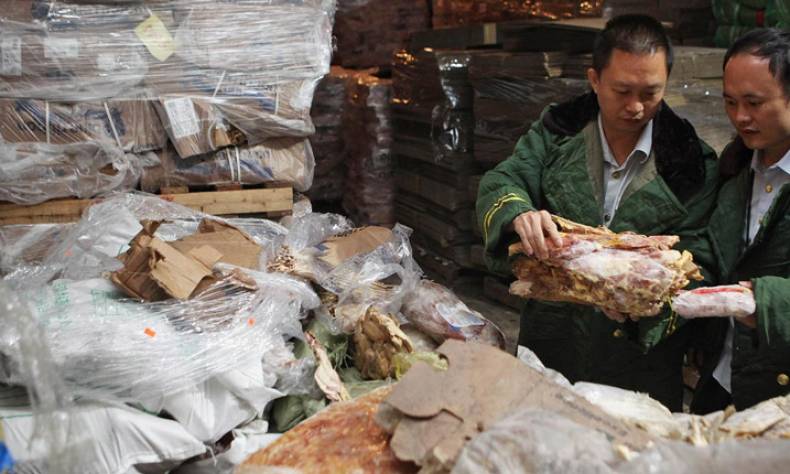
Zombie Meat yet another Reason to Go Vege in China
I have lived in China for around five years now, and much of that was spent in blissful ignorance. By that I mean that one of my favorite things to do in Beijing on a fine summertime evening was to sit around a weather-beaten plastic table that belonged on a patio back when patios were invented and eat chuanr, otherwise known as skewered meat liberally seasoned with cumin and chili. To sit in the nighttime humidity and chow on lamb shish kebabs while complaining about the air pollution and drinking lukewarm Yanjing beer seemed like a truly Beijinger thing to do.
But oh how that ignorance has me looking back in wonder that I did not contract rabies or some other equally delicious disease carried by members of the Canidae (dogs, foxes), Mustilidae (badgers, minks) or Muroidea (rats) families. And if not for the dubious “lamb” that I ate, then what of its age? Was it in fact older than I, originating from a cache of “zombie meat” aged 30 years for flavor? Piquant yet nostalgic.
I bring this up now as there has never been a better time in China to be a vegetarian. My in-laws are rabid vegetarians for a myriad of reasons, and being the son of a New Zealand sheep and beef farmer I have always somewhat laughed at their dietary denial. But in the face of the latest Chinese food scandal, the confiscation of more than 100,000 tons of decades-old meat by Chinese customs officials in the dying days of June, such nutritive restrictions seem prophetically sage. According to local media, more than 20 smuggling rings were targeted and frozen “zombie” pork, beef, and chicken legs worth 3 billion yuan ($483 million) confiscated as gangs smuggled the meat from neighboring Vietnam. Some media reports state that the meat had defrosted a number of times due to the lack of refrigerated transportation used by the smugglers, increasing the risk and grossness factor even more.
To be honest, I haven’t eaten street food in Beijing for some time. If you live in China and pay even a modicum of attention to the news, you will be bombarded with stories of fox meat sold as donkey meat in Walmart (January 2014), rat and mink sold as mutton (May 2013), and even Western corporations such as McDonald’s getting duped by the local unit (Shanghai Husi) of their meat supplier (OSI China, a subsidiary of the OSI Group, a U.S.-based meat producer) and selling expired meat in their products. Yay for listeria!
Premier Li Keqiang has sworn time and again that food safety remains a cornerstone concern of the current Chinese government, and I really do believe him. Time and again, however, the central government appears undermined by local governments or lower-level officials and authorities who may stand to profit from turning a blind eye. And despite all the proclamations of a zero-tolerance stance towards food safety offenses, lax regulations and a pass the buck mentality has hindered results to date. The April “beefing up” (bad, I know) of the 2009 Food Safety Law may make some difference in the future, but I am afraid that it is not enough to ease my mind. No more Chinese meat for me – no street food, no meat in Chinese restaurants – only imported meat from boutique butchers that I trust. I hope that one day before I leave that I can enjoy the simple pleasures of a lamb chuanr on a summer’s eve, but I am not holding my breath in anticipation.
 Facebook
Facebook
 Twitter
Twitter
 Linkedin
Linkedin
 Google +
Google +











Comments are closed.